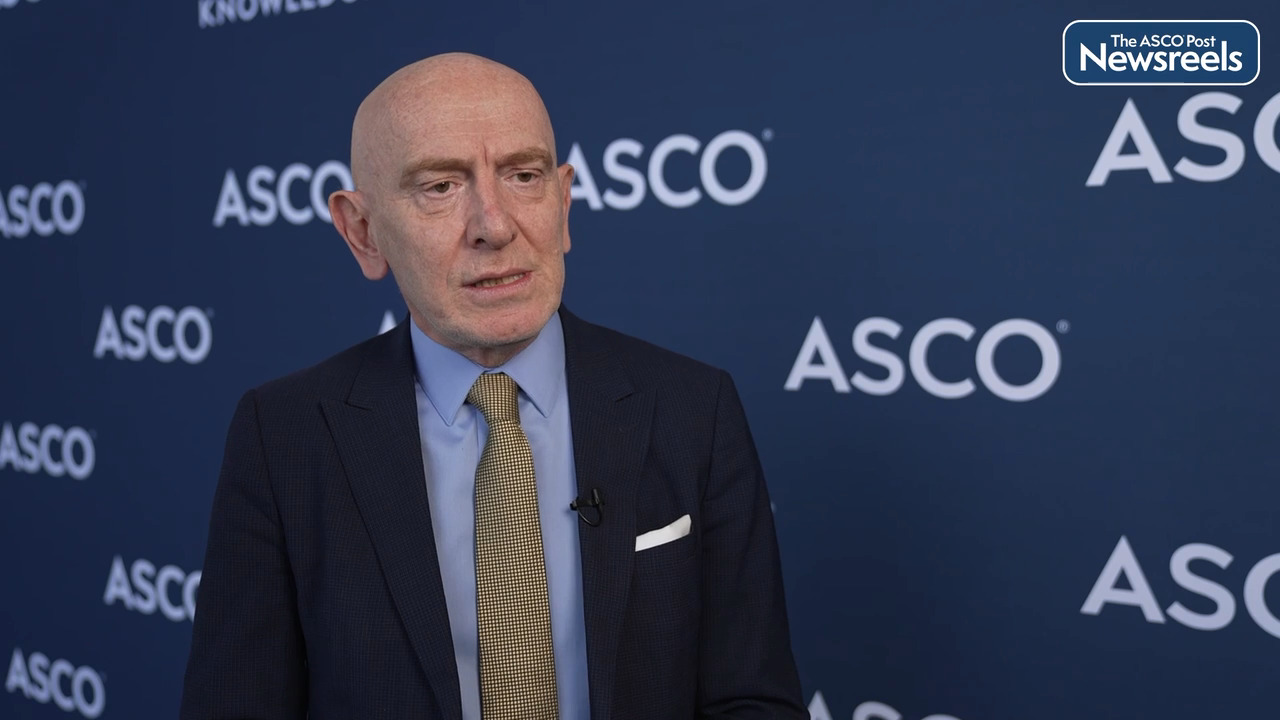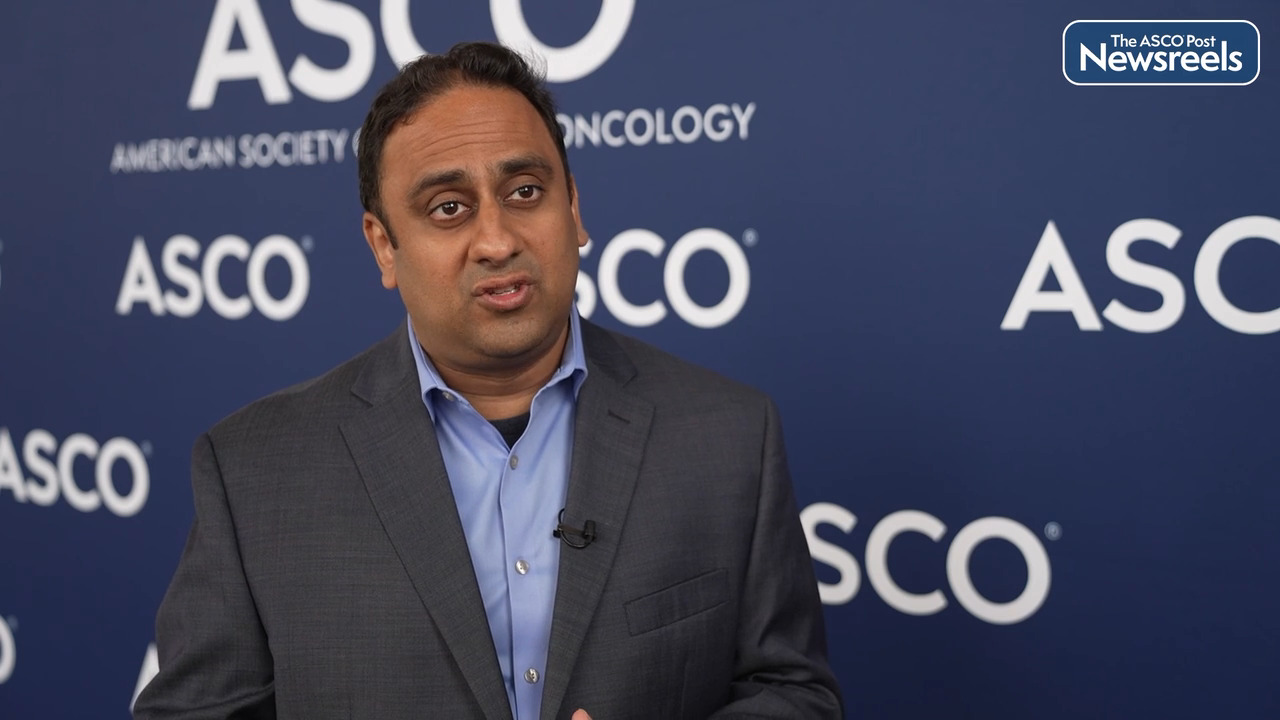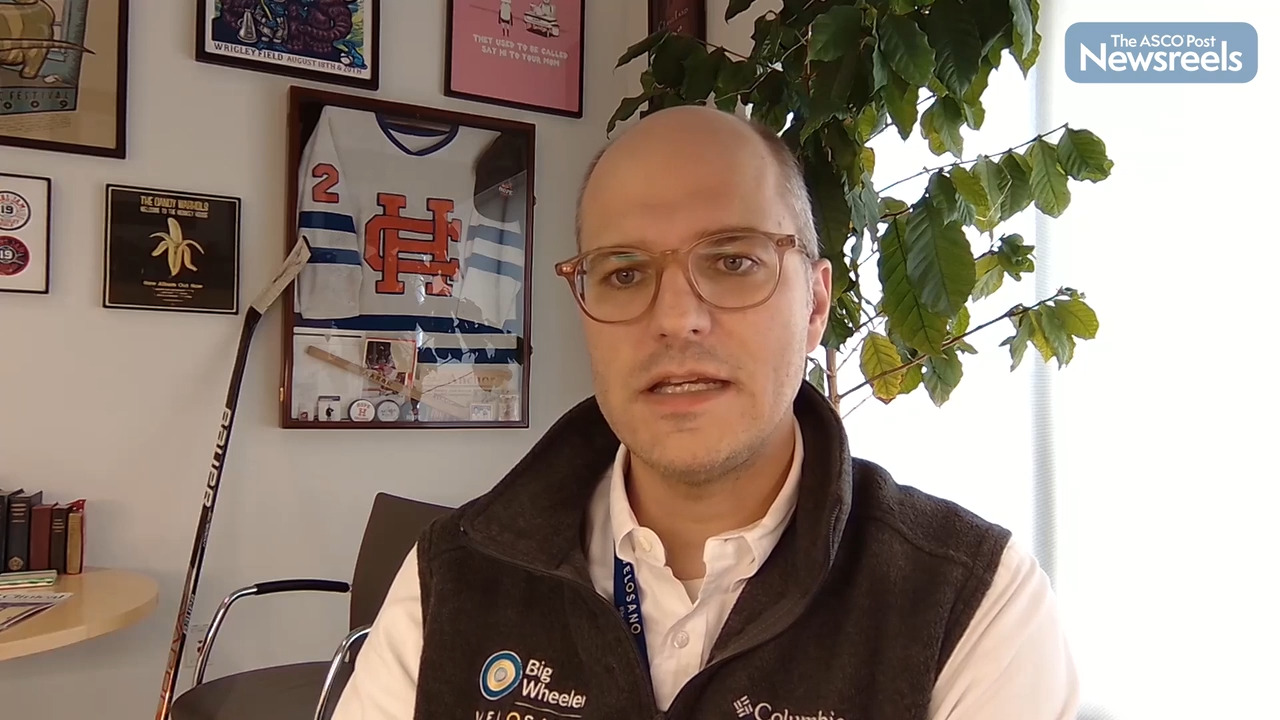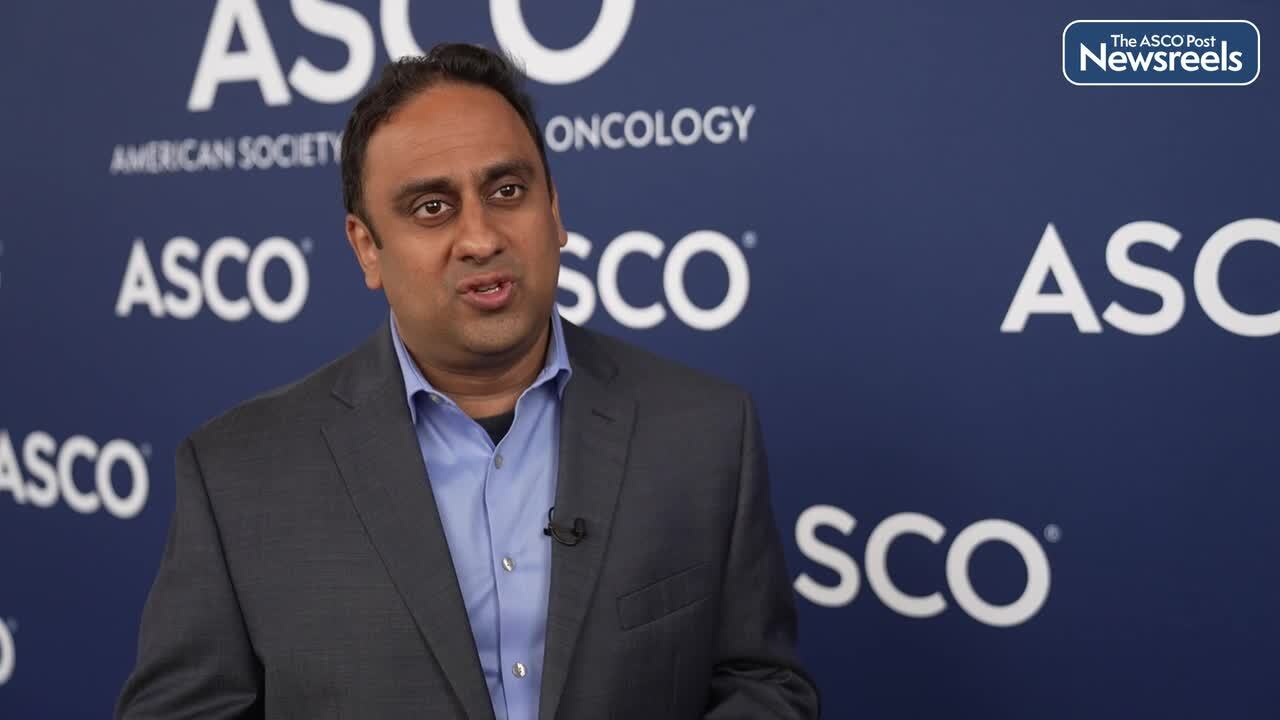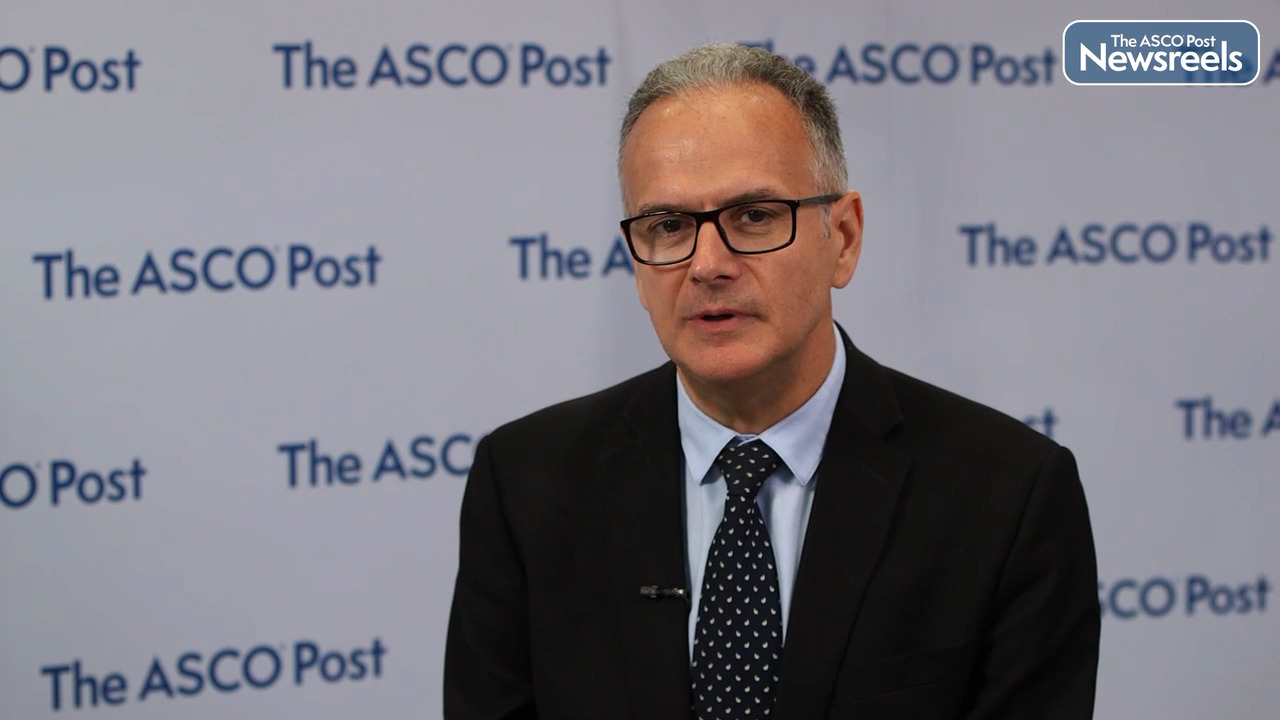Transcript
Disclaimer: This video transcript has not been proofread or edited and may contain errors.
The Alliance A041702 trial is an NCTN phase III clinical trial looking at initial therapy for older patients with previously untreated chronic lymphocytic leukemia, or CLL. The study was investigating the regimen of ibrutinib plus venetoclax plus obinutuzumab compared with the doublet of ibrutinib plus obinutuzumab. The study is actually the successor trial to the A041202 study, which demonstrated a superior progression-free survival for either ibrutinib given alone or in combination with rituximab compared with chemoimmunotherapy with bendamustine plus rituximab. So even though ibrutinib does produce long-term durable remissions for many patients, patients do have trouble sometimes with the indefinite administration of therapy in terms of long-term toxicity and sometimes financial implications of a continuous treatment as well. So the purpose of this study was to see whether adding venetoclax to this doublet might allow more patients to have undetectable minimal residual disease and complete responses and thus be able to discontinue therapy.
So the way the trial is designed is patients were randomized to the triplet, again ibrutinib, venetoclax, obinutuzumab, or IVO, or the doublet ibrutinib plus obinutuzumab. After a year of treatment, and this included just six months of the antibody, all patients underwent a response evaluation. Those patients that were on the doublet arm all then continued ibrutinib indefinitely, and the patients on the triplet arm underwent a response-adapted either discontinuation of ibrutinib or continuation of therapy.
The reason this study is being presented so early is because it actually did meet its futility boundary, meaning that IVO is not superior to IO. However, importantly, we do think that this study may have been confounded somewhat by the COVID-19 pandemic, where the death rate from COVID-19 was higher in patients treated on the triplet arm than those treated on the doublet arm. Outside of this, the toxicity profile between the two regimens was actually relatively similar. There was a little bit higher a risk of hematologic toxicity with the additional of venetoclax, but non-hematologic toxicity in general was fairly similar on the two arms.
So when we look at progression-free survival at this time, which we have about 14 months of follow-up right now, it actually is very similar between the triplet and the doublet with the PFS trending towards favoring the doublet a little bit over the triplet. However, when we censor patients who died of COVID-19, we actually see that trend reversed, where there is a trend towards improved PFS with the triplet versus the doublet. Because of this, we think it's going to be really important to follow this study long-term. Though we are not ever going to be able to conclude that IVO is a better therapy than IO in this patient population, it may be that some patients would benefit from the discontinuation of therapy. And we really will only see that when we have much longer follow-up and many more patients who have actually discontinued the treatment. In addition to long-term follow-up on this study, we are going to continue, in the Alliance for Clinical Trials in Oncology, to investigate frontline therapy for older patients with CLL, with the goal of really trying to determine what is the optimal therapy for this patient group.
